About the Cohort
FCoP brought together a cohort of six organizations from the libraries, archives, and museums spaces, all of them invested in elements of software preservation and emulation. Each organization has a different approach to preservation, different institutional challenges, and a different kind of collection. The dedicated project teams from these diverse organizations assembled to embark on software preservation and emulation projects and grow a community of practice that would promote collective learning and develop tools, best practices, and a bold action agenda.
These cohort teams — four based at universities, one at a computer history museum, and one at an art museum — produced a wide range of documentation and outputs throughout the project duration including reports, workflow documents, podcasts and blog posts. Each team’s project information and documentation can be found by clicking through on their profile below.
A Guide to Cohort Documentation
A number of themes and throughlines emerged from the cohort conversations and documentation. These themes and the associated documentation are presented in “A Guide to FCoP Documentation.” The Guide serves as a thematic index with page level citations to different pieces of FCoP documentation. Themes include but are not limited to “limits of scale and resources,” “software use expectations,” “terminology and definitions,” and “advocating value.”
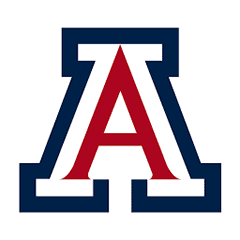
University of Arizona
Through Use and Emulation: Increasing Institutional Knowledge of Software Preservation with Computer Game Archiving
The Learning Games Initiative Research Archive (LGIRA), led by librarians at the University of Arizona in Tuscon, studies, teaches with, and builds computer games in educational contexts. The FCoP project aimed to bring together stakeholders and a community of interest around LGIRA, developing conversation and workflows around its “preservation through use” approach.
The project convened a community of practice in work and discussions that illuminate challenges around software preservation activities, and developed some initial digital workflows involving emulation. LGIRA’s “preservation through use” approach involves practitioners from diverse backgrounds, meaning that teaching, learning, and the development of a shared vocabulary around preservation and emulation became a core part of the project, while the “people first” community of practice approach centered people and learning communities as the main structure for preservation.
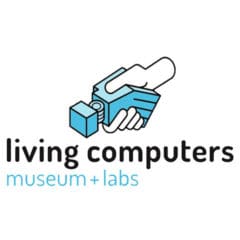
Living Computers: Museum + Labs
Emulation in the Middle Ages: Mainframes and Minicomputers
LCM+L is a hands-on computing technology museum that aims to empower people through the active use of computing technology. LCM+L’s project aimed to expand the software preservation discussion into the “Middle Ages of computing” through emulation of vintage operating systems and software.
The FCoP project worked to pilot a number of emulators for vintage operating systems and software in order to preserve and share computing history. The pilot worked to bring in-house emulators, developed by LCM+L staff, into the Emulation-as-a-Service Infrastructure (EaaSi) sandbox. It also focused on best practices and workflow documentation for working with emulators, and exploring the experience of emulators themselves. Expanding the possibilities of emulation, including emulation as a service, builds towards the LCM+L goal of providing access to experience — that is, visitor access to working computers and software that could be used both onsite and online.
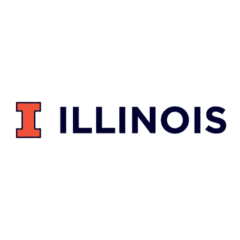
University of Illinois
Preserving Musical Notation and Composition Software
The Sousa Archives and Center for American Music at the University of Illinois documents America’s local and national music history and its diverse cultures through the collection and preservation of archival records and historical artifacts in multiple media formats. The team’s project aimed to improve access to files recovered from born-digital media created by contemporary music composers.
The FCoP project investigated the development of emulated environments where composer’s born-digital files could run in as close to a native environment as possible. We are also interested in scaling this environment to meet the needs of future collections of composers’ born-digital content. With creation dates ranging from 1992-2012 (a lifetime in computing years), the collections present a range of challenges for access and emulation, from proprietary software and limited backwards-compatibility, to the complexities of institutional policies, procedures, and workflow required to do the work.
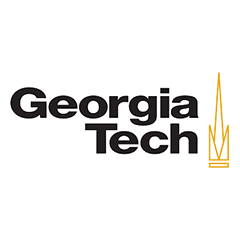
Georgia Tech
Expanding Access Through Emulation: retroTECH Online
retroTECH, a project supported by the Library at Georgia Tech in Atlanta, engages the campus community in creating the future by exploring and preserving our technological pasts. The retroTECH FCoP project sought to develop an online presence for tech history that is as innovative as its physical spaces.
The FCoP project team aimed to create a proof-of-concept for retroTECH Online, an online emulation environment through which authenticated Georgia Tech students and other researchers can utilize emulated software from retroTECH’s collections for teaching and learning. The project also produced a series of oral history “software stories” that provide cultural and historical context surrounding that software.
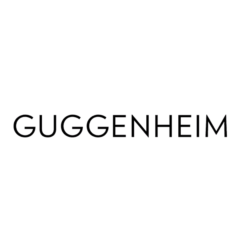
Guggenheim Museum
Developing Metadata for Software-based Art (DMSA)
The Solomon R. Guggenheim museum is a modern and contemporary art museum in New York City. As part of the museum’s Conserving Computer-based Art initiative, members of the Guggenheim’s conservation department joined the FCoP cohort to investigate documentation and metadata practices for computer-based artworks.
The FCoP project team explored questions around metadata and the description of software-based artworks, including what, how, and how much information about an artwork needs to be collected to support its future exhibition, and what role will this information play in future access through emulation or alternative strategies. These lines of investigation are essential in discussions of access to software-based artworks, which typically occurs through gallery presentation —in the case of the museum’s three web artworks—online. As artworks, software-based pieces are not only expected to reproduce a functional experience, but also an aesthetic experience true to the artist’s original intent.
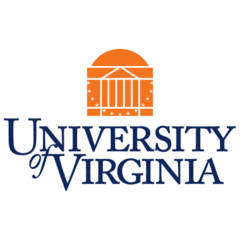
University of Virginia
Emulation in the Archives
The Library at the University of Virginia in Charlottesville provides access to accumulated knowledge and advances learning by collecting, preserving, organizing, and sharing materials of all kinds. The Emulation in the Archives project aimed to build, test, and develop workflows related to preservation and emulation in Library collections.
The FCoP cohort project worked to document and openly share reproducible technical and administrative workflows that result from the processing, preservation, emulation and access to software and digital materials in the Peter Sheeran papers — a collection from a local Charlottesville architecture firm comprised of many software dependent items. The project also worked to share knowledge and build engagement, publicly documenting the parallel failures, roadblocks, and resourcing realities, in order to inform successful approaches within the preservation community in the future.